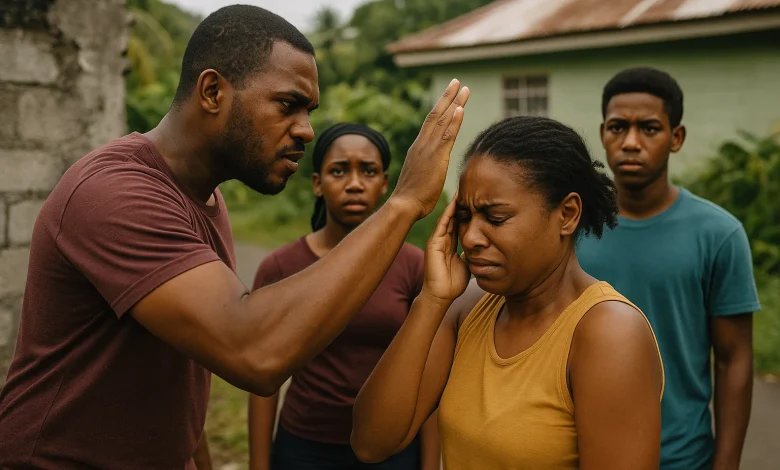Gender Based Violence (GBV) in Dominica

Gender based violence (GBV) in Dominica is recognized as a critical social and public health issue, affecting women, girls, and increasingly documented among men and boys. GBV in the Dominican context includes domestic violence, sexual assault, harassment, emotional abuse, and economic control within intimate and community relationships. While data remain limited, reports from the Bureau of Gender Affairs, the Dominica National Council of Women, and international agencies identify GBV as a persistent challenge requiring legal reform, institutional support, and cultural change.
Historical and social background of GBV in Dominica
The roots of GBV in Dominica lie in long-standing social norms, economic dependencies, and gender inequalities. Colonial legacies created patriarchal structures that limited women’s autonomy, and these patterns carried into the post-independence era. Although women’s participation in education and the workforce has expanded, GBV continues to manifest in homes, workplaces, and public spaces. Civil society groups such as the Dominica National Council of Women and the Caribbean Association for Feminist Research and Action (CAFRA) have advocated for increased awareness since the 1980s.
Legislative framework addressing gender based violence
Dominica has enacted laws aimed at protecting survivors and punishing perpetrators:
- Protection against Domestic Violence Act (2001, amended) – Provides restraining orders, protection orders, and police intervention in cases of abuse.
- Sexual Offenses Act (1998, amended 2016) – Expands definitions of rape, incest, and sexual assault, with stiffer penalties and victim-protection provisions.
- Equal Pay Act (2011) – Addresses workplace discrimination, indirectly linked to economic control and vulnerability.
- Children and Young Persons Act – Protects minors from sexual abuse and exploitation.
Despite these laws, enforcement challenges persist, with survivors often facing stigma, social pressure, or limited access to legal aid.
Institutions and support services
The state and NGOs provide a network of services for survivors of GBV, though resources are limited:
- Bureau of Gender Affairs – Oversees policy, public education, and case referrals.
- Dominica National Council of Women – Advocates for survivors and offers support.
- Ministry of Health, Wellness, and Social Services – Provides medical care, counseling, and referrals.
- Police Special Victims Unit – Handles sensitive cases, though capacity is often stretched.
- Shelters and safe housing – Limited in number, often supplemented by faith-based and NGO initiatives.
Forms and prevalence of GBV in Dominica
While comprehensive statistics are scarce, anecdotal and survey evidence points to domestic violence as the most common form of GBV, followed by sexual assault. Reported cases often underrepresent the actual prevalence due to fear of retaliation and cultural stigma. Forms of GBV observed include:
- Domestic violence – Physical and emotional abuse in intimate partnerships.
- Sexual violence – Rape, incest, and sexual harassment, especially targeting women and minors.
- Economic abuse – Restricting access to financial resources to control partners.
- Psychological abuse – Verbal intimidation, threats, and coercion.
Social, economic, and health impacts
GBV carries profound consequences for Dominica’s development. Survivors may suffer physical injury, trauma, and long-term mental health challenges. Economic impacts include reduced productivity, absenteeism from work, and costs of healthcare and legal proceedings. Social impacts involve intergenerational trauma, with children in abusive households more likely to experience or perpetrate violence in adulthood.
Challenges and strategic priorities
Dominica faces several obstacles in addressing GBV:
- Limited shelters and survivor services, particularly in rural areas.
- Gaps in enforcement of protective laws.
- Social stigma and cultural silence surrounding abuse.
- Need for stronger data collection and monitoring systems.
Strategic priorities moving forward include:
- Expanding survivor support services and shelters.
- Training police, healthcare providers, and judicial officers in survivor-centered approaches.
- Public education campaigns to challenge harmful gender norms.
- Integration of GBV prevention into school curricula and community programs.
- Strengthening regional cooperation through CARICOM and OECS initiatives.
Overall assessment of gender based violence in Dominica
Gender based violence in Dominica remains a deeply entrenched challenge that undermines social cohesion, health, and economic development. While legislative progress has been made, implementation gaps, resource constraints, and cultural barriers limit the effectiveness of response systems. Continued investment in survivor support, public education, and enforcement of protective laws will be necessary to reduce GBV and its long-term impact on Dominican society.




